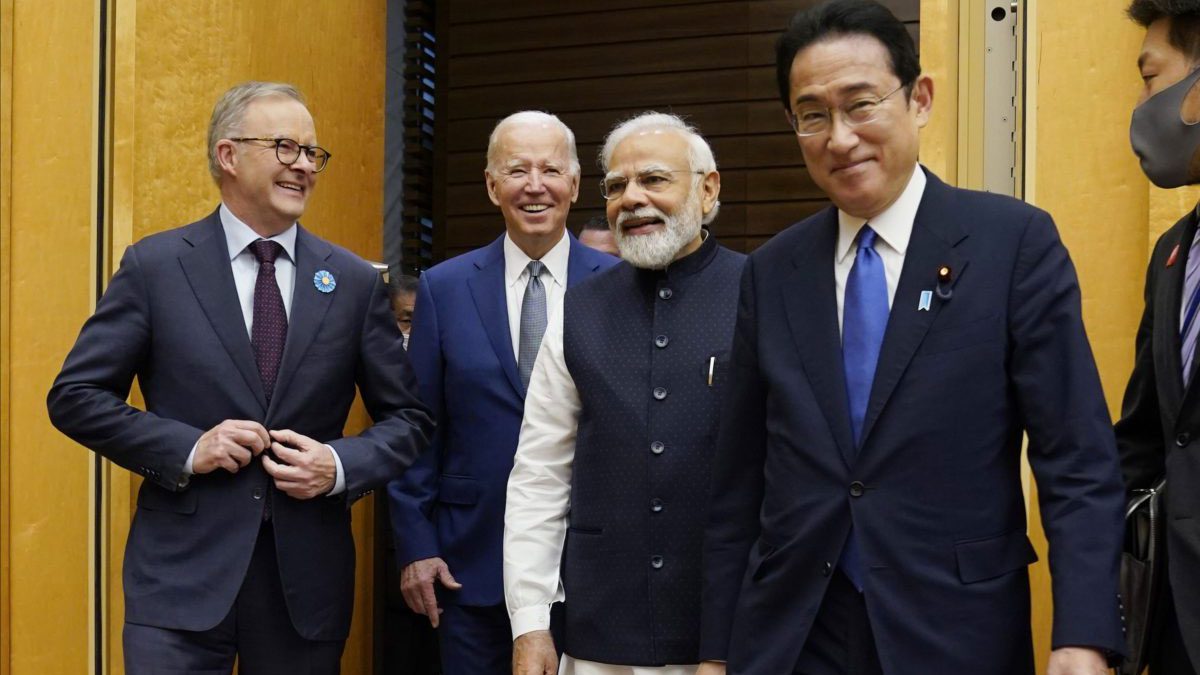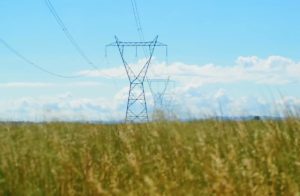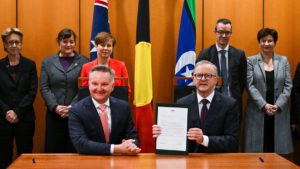Prime minister Anthony Albanese has commenced a reset of Australia’s international climate action commitments, formalising its commitment to a stronger 2030 reduction target in his first address to a major international forum.
Just a day after being sworn in, Albanese is in Tokyo for the ‘Quad’ meeting with the leaders of Japan, India and the United States to discuss collaboration between the four regional powers and how they can rebuild relationships across the Pacific region.
Albanese used his opening address to formally commit Australia to the stronger 2030 emissions reduction target that Labor had taken to the election, saying that delivering climate action was a key diplomatic challenge in the Indo-Pacific region.
“The region is looking to us to work with them and to lead by example. That’s why my government will take ambitious action on climate change and increase our support to partners in the region as they work to address it, including with new finance,” Albanese told the meeting.
“We will act in recognition that climate change is the main economic and security challenge for the island countries of the Pacific. Under my government, Australia will set a new target to reduce emissions by 43 per cent by 2030, putting us on track for net zero by 2050.”
It represents the first time since the Abbott government in 2015 that Australia has committed to increasing its 2030 emissions reduction target. The outgoing Morrison government had held firm to Abbott’s 26 to 28 per cent reduction target – a goal long seen as inadequate both domestically and among Australia’s international peers.
It still sees Australia adopt one of the weakest targets among Quad members, with the United States committed to reducing emissions by 50 to 52 per cent below 2005 levels by 2030 and Japan aiming to reduce emissions by 46 per cent by 2030.
India has set an emissions intensity reduction target of 33 to 35 per cent below 2005 levels – noting India is in a much different economic position to the other Quad members. Labor will continue to face domestic pressure to strengthen its 2030 target.
While Albanese has issued Australia’s first formal commitment to stronger emissions reduction targets, it also heads off any expectation that Labor could be pushed to adopt an event stronger target in the wake of the election result, at least in the short term.
It will fall short of the expectations of many – including the raft of Greens and Independents who had election wins off the back of campaigns focused on stronger climate action – b ut still represents a significant step forward for Australia on the international stage.
The Australian Greens will send its largest ever parliamentary delegation to Canberra after backing a 75 per cent emissions reduction target for 2030, while ‘teal’ candidates also successfully won seats while supporting targets of between 50 and 60 per cent cuts.
Australian environment groups will also be pushing the newly formed Albanese government to adopt stronger targets, with WWF Australia, Greenpeace, the Australian Conservation Foundation, the Carbon Market Institute all calling on Labor to strengthen its climate commitments in the wake of its victory.
In analysis published prior to the election, think tank Climate Analytics found Labor’s target was inconsistent with the Paris Agreement goal to limit global warming to 1.5 degrees, finding it was aligned with more than 2 degrees of global warming.
The outgoing Coalition government resisted international pressure to ramp up Australian efforts to cut emissions, spending the last nine years obfuscating Australia’s climate efforts, including pursuing concessions that would have allowed Australia to short-cut its way to targets.
The Quad meeting is being hosted by Japanese prime minister Fumio Kishida and is expected to see the four countries progress strategies for countering the growing influence of China in the Asia Pacific region, as well as for cooperation between Quad members on trade and climate cooperation.
Ahead of the Quad meeting shifting to formal talks, other leaders, including Indian prime minister Narendra Modi and US President Joe Biden, indicated they were sympathetic to the fact the new Australian prime minister had only been sworn in the day before.
“Prime Minister Albanese, I welcome you to your first Quad meeting. Like I said, you got sworn in, got on a plane and if you fall asleep while you’re here, it’s okay,” Biden said.










